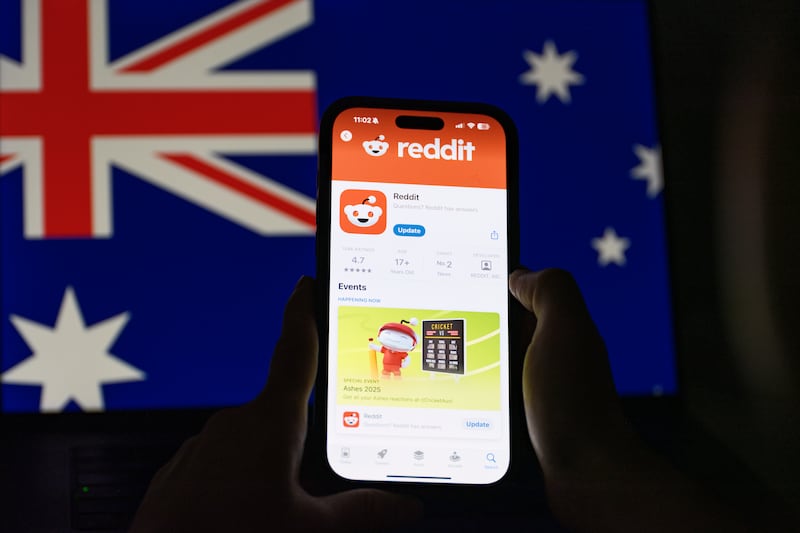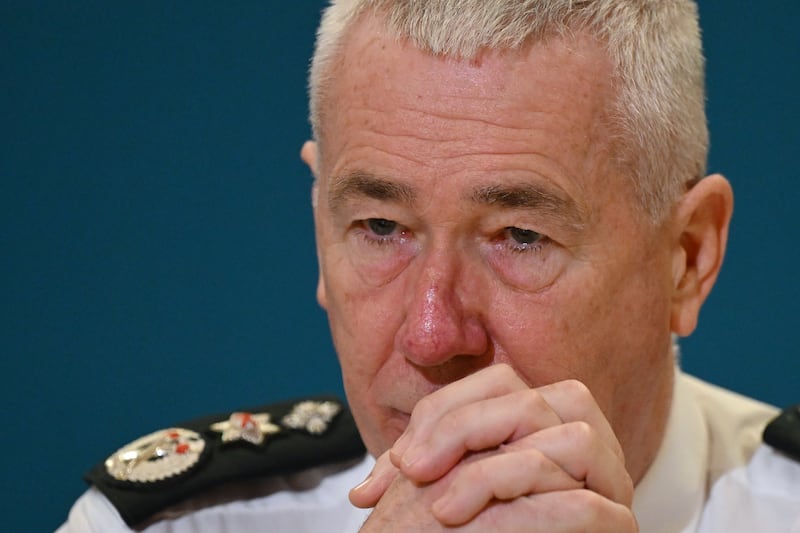
Besan Al Mabhoh - 'We are facing alarming shortages'
“For many families, the day begins, not with breakfast, but with an exhausting question of whether there will be anything to eat at all,” says Besan Al Mabhoh (32), a translation student, media worker and mother of three in Gaza.
“We are facing alarming shortages of essential supplies, particularly food and cooking gas ... The market is nearly empty. Basic food items such as flour, rice and canned goods have become scarce,” she adds. “Many families have cut meals to one per day, relying on bread and tea when nothing else is available. By the way, a cup of tea [is] considered a luxury because the sugar is too expensive.”
Describing her personal situation, Al Mabhoh says: “I don’t have any food.”
Hunger is widespread as Gaza has entered its third month of total siege, with no food, medicine or any other supplies allowed to enter the enclave.
RM Block
Israel began the siege on March 2nd, saying it wanted to pressure Hamas into giving up more of the hostages it seized in its attack on Israel on October 7th, 2023, without implementing a previously agreed progression towards the withdrawal of Israeli troops.
[ The Irish Times view on Israel’s plan in Gaza: anatomy of a war crimeOpens in new window ]
This came months after the International Criminal Court issued arrest warrants for Israeli prime minister Binyamin Netanyahu and former defence minister Yoav Gallant for war crimes, including starvation as a method of warfare. On May 2nd, the International Committee of the Red Cross said the humanitarian response in Gaza was “on the verge of total collapse”. The Israeli prime minister’s office did not respond to a request for comment.

Israel also faces a genocide case in the International Court of Justice. Since its bombardment of Gaza began in response to the October 7th attack, more than 52,000 Palestinians have been killed, according to the Hamas-run Gaza health authorities. Some 1,200 were killed and 251 taken hostage in the Hamas-led attack, according to Israel.
A study published by the British medical journal, the Lancet, found that in the first year of Israel’s war on Gaza, life expectancy in the coastal enclave dropped to about half its pre-war level of 75.5 years. But humanitarians say the siege has prompted a whole new level of suffering.
The Irish Times spoke to four Palestinians in Gaza about the conditions they are experiencing. The interviews were conducted by phone and via messaging apps, as international journalists have been barred from reporting from Gaza, without embedding with Israeli forces, since the bombardment began.
‘These conditions have exhausted our physical and spiritual energy’

“Unfortunately, I did not celebrate because there was no cake, hahahaha,” says Haifa Farajallah. She is talking the day after her 42nd birthday.
“The food situation is very poor. We are a family on the verge of running out of food,” says Farajallah. “Yesterday, we mixed flour with pasta to make bread, but our stocks will run out at any moment. There is no cash flow to cover some of the essential items, and I cannot get more due to the exorbitant prices of the most basic necessities, whether vegetables or flour. Prices have become astronomical.”
She says canned goods make up most of what is left. “The most common are lentils, pasta, cans of peas, or beans, if available at all.”
Farajallah works in a health clinic and lives with her mother and sister. She is originally from Wadi Gaza, on the coast, and is currently in the central Maghazi area. Since October 10th, 2023, she has been displaced multiple times, including to Deir al-Balah, Rafah and Khan Younis.
Farajallah says she and her mother are suffering from chronic stress, but there is a shortage of heart medication as well as medications for skin diseases.
“I want to say that I hope the war ends. Indeed, it must stop, because these conditions have exhausted our physical and spiritual energy and everything else,” she says. “We are now searching for a new day without destruction and war, only peace and calm. I hope that this peace will be achieved soon and that my people will enjoy security and safety.”
‘I don’t know if I took the right decision to stay or not’

Mohammed Abu Mughaiseeb - 'fear, anxiety, insomnia'
“Food is a project,” says Dr Mohammed Abu Mughaiseeb, the deputy medical co-ordinator for Médecins Sans Frontières France in Gaza.
“For every person in Gaza now it‘s the daily project that they need to do every day to find what they will eat.” Pasta is no longer available in the market, he says, while a 25kg pack of flour has shot up from about $12, before a ceasefire agreed in January ended in March, to about $500 (€440) today. “Me, personally, I’m eating only one meal per day because there is nothing to buy.”
In the hospital and clinics where Abu Mughaiseeb works, he says most of the cases they treat are second- and third-degree burn injuries related to air strikes; multifracture trauma, with some people requiring amputations; and infectious diseases including skin infections, related to a lack of clean water and food.
They have started receiving malnutrition cases too. Yet medical supplies are blocked by the siege, including medical disposables, medicine and water. He says more than 40 per cent of the items they need have run out. “Chronic patients are suffering from [a] lack of their medication ... Antibiotics, the painkillers, all of this is now a huge problem”.
Abu Mughaiseeb says charity kitchens, which huge numbers of people rely on, have closed due to their stocks running out. “Medical staff are part of the population, so they are ... suffering from the same thing.” He calls this “an acute hunger stage ... For the patients as well, they are facing the same issues, lack of food, because they were counting on the food that has been provided by the World Food Programme or World [Central] Kitchen ... This will affect, of course, the healing process, the immune system.”

There is no term adequate to describe the mental health crisis facing people in Gaza, he says, though it‘s “really deteriorating”. There is “fear, anxiety, insomnia, not sleeping, loss of appetite, depression, panic disorder. So all these are mixed together ... They are traumatised. And every day is getting worse and worse. People around me ... they lost hope, they lost motivation, they’re tired, exhausted, mentally and physically.”
In February 2024, Abu Mughaiseeb’s wife and children were evacuated to Egypt. He says he planned to follow them after working in Gaza for a bit longer. “I didn’t realise that the borders will close totally ... Now it‘s [been] more than one year and a half. Separation is very difficult. Being alone is always difficult ... I see my colleagues. Yes, they are in danger with their families, but at least they have families with them, united. They take care of each other ... I don’t know if I took the right decision to stay or not, and I wish that this war will end so I can really unite with my family.”
‘There are no words to describe the meals we are forced to make’
Hamada, a 25-year-old engineer, wanted only his first name used for fear of repercussions. Originally from Khan Younis, he has also been displaced multiple times. “Each time we flee, we leave behind pieces of ourselves – our memories, our dignity.”
He has been working with a grassroots initiative called Silent Helpers to assist others. “Sadly, due to skyrocketing prices, we can no longer distribute food. We now focus on one basic necessity: drinking water.” Each day, they deliver it to about 80 families, he says.
“As for my own family, we are facing real hunger. There are no words to describe the meals we are forced to make just to survive ... Famine is not just a word – it is our reality. You can see it in the sunken faces, the silence of hungry children, and the despair in parents’ eyes.”

The engineer says there is no medicine available. “My mother suffers from chronic rheumatoid arthritis and lives in pain every single day because she can’t get her medication. Her story is just one example among thousands.”
Some Gazans’ behaviour has changed because of desperation, says Hamada. “Hunger has pushed a few to theft – not because they’re immoral, but because they’re desperate. I’ve seen fathers torn between their faith and their starving children. Some have broken down and stolen – not for greed, but for survival.”
[ ‘Desperate, traumatised people’: Gaza faces wave of looting, theft and violenceOpens in new window ]
Even children have grown numb to the sound of explosions and the sight of blood, he says. “Most people here have lost faith in the so-called civilised world. They feel abandoned – that justice depends on geography. But still, there are a few free voices around the world who support us quietly and do what they can.”
Hamada says he wants “the world to remember we are human. We don’t want pity – we want justice. This isn’t just about politics any more; it‘s about our existence. We’re not only dying from bombs – we’re dying slowly from hunger, from sickness, from the world turning its back on us.”
‘I can’t bear to see my children fighting over a loaf of bread’
As for Besan Al Mabhoh, she was displaced from her home in Rafah city more than a year ago. She is now in Deir al Balah, with her three children, her husband and his parents.
Like others with underlying health conditions, the lack of nutritious food is particularly challenging for her because she suffers from a H.pylori stomach infection. “I need mineral water [and] healthy food, because my stomach is affected by canned and fried food. As a result, I am constantly in severe pain that I can’t treat.”
At the same time, there is bombing “every day, everywhere. They target cafes, they target houses, mosques, hospitals, all of these targets are near us. It‘s not safe, there’s no safe place,” she says.
“I would like to add that this war has deprived us of privacy. There is no place of rest, relaxation or even to relieve sadness. I lost most of my friends and the others have travelled abroad. My children have been deprived of their right to education.”
She becomes audibly upset as she says “I can’t bear to see them carrying large water containers and fighting over a loaf of bread. I used to dream of seeing them become outstanding individuals. I envisioned a different future for them.”






















